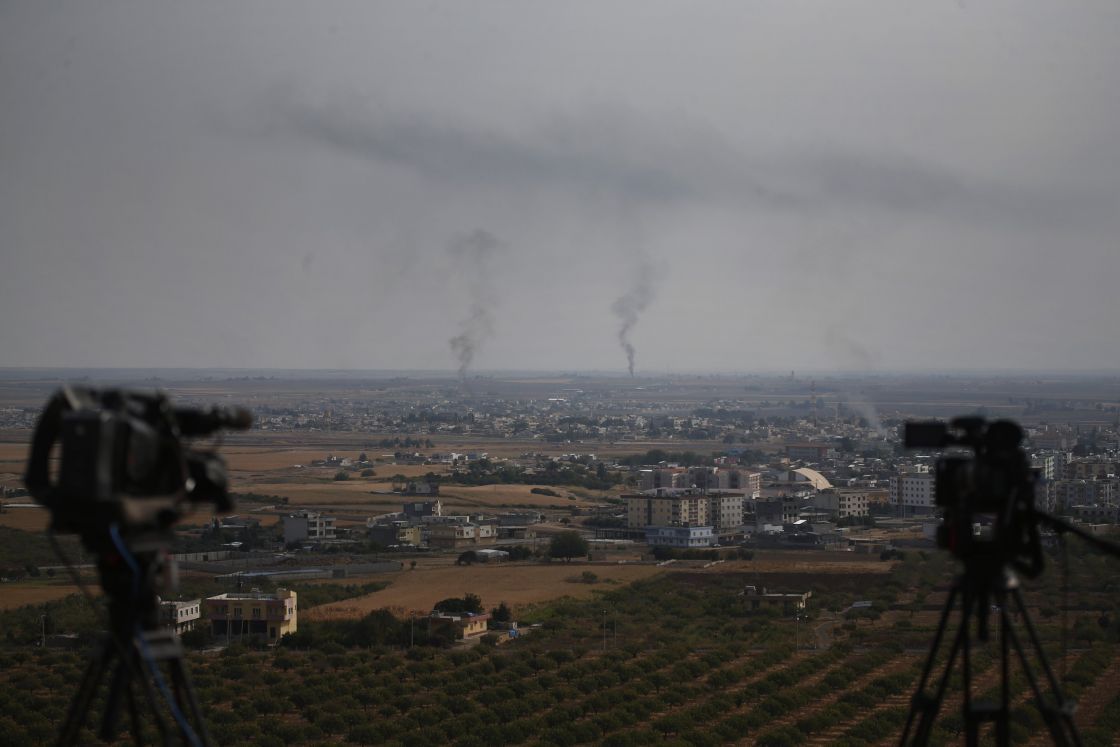- Editorials
- Posted
Which Democracy Does Syria Need Today?
Clashes resumed this afternoon in Qamishli after a short truce brokered by Russia. It is not clear how long these clashes will extend. This is despite the efforts made by the residents of the area and the Russian side, to try to stop the clashes immediately.
This event is an additional indication of what has become known and understood by all Syrians: Without a comprehensive political solution based on UNSC Resolution 2254, the situation will remain threatened by all kinds of dangers in all parts of Syrian territories.
Syrians will not be spared neither from the catastrophic economic situation, nor from security tensions, oppression, terrorism, or the persistence of foreign presence, as long as the dominant structures remain the same, and as long as the country is in a de facto partition.
Within these coordinates, it is quite interesting that we see detachment from reality through preparations for “democratic processes” and “critical decisive events”, which we see taking place in parallel, in more than one region in Syria, and even from sides (that are ostensibly contradictory). Though, there are some differences in the timing of the planned “democratic processes”.
What we have emphasized and continue to repeatedly emphasize is that the economic, social, and political aspects (including freedoms and the democracy question) are aspects that are organically interrelated and cannot be separated in any way, and they are three aspects of one essential matter, which is the national cause.
The national slogan has absolutely no meaning if it is just a banner raised to cover oppression and plundering. Rather, the oppressors and plunderers offend the national cause and the national slogan when they raise it, because when they associate their structure (with all its suppression and corruption) with the national slogan, they alienate people from that slogan.
Likewise, it is meaningless to talk about “democratic processes”, “ballot boxes”, and “political freedoms” under the control of weapons in the various parts of Syria, in light of the de facto partition, and in a situation in which millions of Syrians are distributed among three regions in Syria itself and many millions more outside the country, and on top of that, under tragic conditions in the socioeconomic sense.
Moreover, the “democratic processes” that the sides to the crisis are working on will not take place in all of Syria, but rather in a part thereof, and none of them will include Syrians abroad, but rather a part of them.
All this brings us back to the envisioned proposal that the US-based RAND Institute launched more than 5 years ago, namely “the bottom-up change” through regional elections, which was intended, and still is, to transform the military frontlines into political borders, by creating several “legitimacies” on Syrian territories; that is and in one word: partitioning the country under the guise of “democratic elections”.
Proceeding with “democratic” processes under the control of weapons, that do not include the entire Syrian territory, that do not include all Syrians, and that are not carried out on real and fair foundations that guarantee the right of the Syrian people to effectively determine their own destiny, is a very dangerous matter. It will not be just an additional complication of the crisis, or an additional delay in the solution, but more than that, it will provide a free service to those who dream and are working to divide Syria and end its geopolitical existence.
Preserving a Syria, with united territories and people, and getting out of the tragedy that Syrians are living, goes through only one path: the full implementation of UNSC Resolution 2254, on the basis of which elections are held that include all Syrians and all Syrian territories, and in conditions of fairness and transparency.


